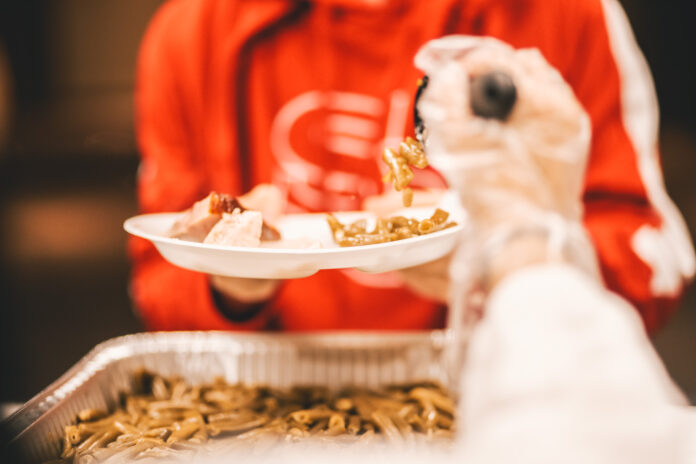
As I prepare for Thanksgiving, I realize I need a few essential items for my cornbread dressing—starting with, of course, cornbread! I also need to plan for desserts, as well as how many apples to buy for my apple cranberry casserole. Wow, it looks like I have a lot of groceries to purchase!
My thoughts are whirling, much like the mixer I’ll use to make my Blackberry Jam cake. I need notes to help me keep my schedule organized between now and the start of 2026. I plan to stop by the Dollar Store after church to pick up a small notebook.
These thoughts ran through my mind on a recent Sunday morning. Thankfully, I did focus on the preacher’s sermon, and afterwards, I made my way to the Dollar Store.
While waiting in the checkout line, a sweet lady in front of me complimented me on how nice I looked. (I did take a bath before church and combed my hair!) Another kind woman allowed me to move ahead in line, as I had only one item, while she had a cart full of groceries. At that moment, I noticed that both women’s buggies were filled with canned goods and perishable items.
“Thank goodness for y’all! It’s the only way I can save a bit on food!” the lady at the front of the line said to the cheerful young cashier. “Yes, ma’am, we see a lot of folks coming in for food these days,” the cashier replied.
With a smile as big as her heart and a spirit as cheerful as her demeanor, she waved goodbye, grabbed her bags, and walked away with no car in sight.
Many Americans are working harder than ever, yet they still struggle to make ends meet.
A sudden wave of shame washed over me. I had gone to church, dressed nicely, and prayed. Afterwards, I settled into the comfort of my husband’s sports car and thought that I should also bake a pecan pie!
What I often overlook while stressing over recipes and festivities is that others are burdened with the fear of their families going hungry.
This holiday season, the growing divide between the “haves” and the “have-nots” in our nation is troubling and disgraceful. Many show an alarming lack of guilt over their indulgences and disregard for those who are suffering. The attitude that some hold is, “Well, I worked hard for what I have!” While this may be true, it’s essential to remember that most of us labor hard, but some of us also receive certain advantages along the way.
Many Americans are working harder than ever, yet they still struggle to make ends meet. Since 1980, income inequality has increased significantly. Most wage increases have gone to top earners, while incomes for the average employee have remained stagnant.
Today, 47 million Americans face hunger each day. An average of one in seven children experiences food insecurity, which negatively affects their academic performance. Additionally, college students often struggle to afford sufficient nutrition due to the overwhelming cost of education and the debt they incur.
My great-grandmother, Mollie, lived in a house on a corner lot with a backyard big enough for a garden. Without that garden, she would not have been able to provide food for her children. The home was run-down, but it was hers, and the ground behind the out-house saved them all from hunger.
Currently, housing is unaffordable for many individuals who struggle economically. The comfort and security that a backyard garden can provide for a family are increasingly out of reach.
Our greatness is measured not by wealth, but by our generosity, kindness, and compassion.
In 1980, there were about two dozen food banks in the United States. Today, that number has surged to nearly 400. Inflation, stagnant wages, and cuts to government reporting on food inequality are causing significant challenges across our nation.
A nation that permits approximately 14% of its citizens to go hungry cannot reach its full potential.
A lack of nourishment leads to health issues and challenges in schools and communities. Food is essential, and without supporting those in need, we all suffer.
Closed eyes, hardened hearts, gluttony, extravagance, and neglecting others cause more pain than we can imagine. Those of us who worry about the size of the turkey or how many pies to bake must also consider those who cannot afford either.
As we gather the ingredients needed to create our ideal Thanksgiving celebration, let us also remember to buy for those who simply desire a meal. We cannot truly give thanks for our blessings if we do not share our abundance with others.
This year, become the hidden Santa, the Christ-like person who cares for the impoverished and nurtures the child. This is how we welcome the Lord to our tables.
By embodying a spirit of goodwill, we bring honor to America. Our greatness is measured not by wealth, but by our generosity, kindness, and compassion.
RELATED: The Turkey Man of Clarkesville and other free Thanksgiving celebrations
_____

Lynn Walker Gendusa began her writing career as a columnist for the LaGrange News. Today, her essays are featured regularly throughout Georgia and Tennessee. Her work also appears in Guidepost, USA Today, The Atlanta Journal, MSN.com, among others. Lynn has authored two books; the latest, “Southern Comfort,” was published in 2022. She can be reached at www.lynngendusa.com. For more of her inspirational stories, click here.


